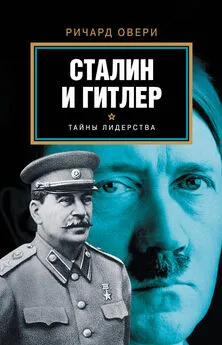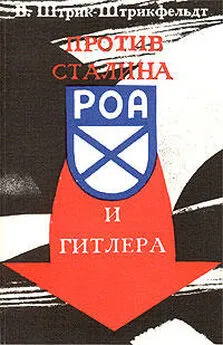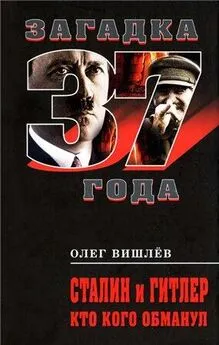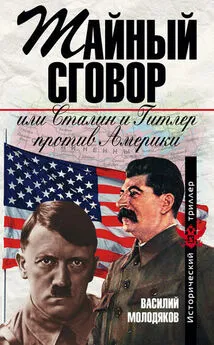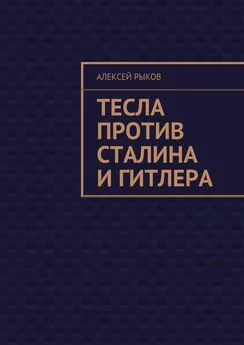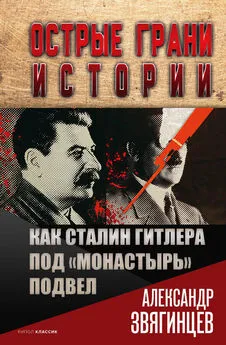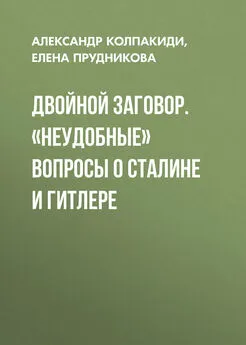Ричард Овери - Сталин и Гитлер
- Название:Сталин и Гитлер
- Автор:
- Жанр:
- Издательство:АСТ
- Год:2015
- Город:Москва
- ISBN:978-5-17-082961-3
- Рейтинг:
- Избранное:Добавить в избранное
-
Отзывы:
-
Ваша оценка:
Ричард Овери - Сталин и Гитлер краткое содержание
Что это были за личности?
Какими были методы их правления?
В чем мораль диктатуры как таковой и к чему она ведет?
На эти и другие наболевшие вопросы отвечает известный британский историк, автор крупных работ по истории Второй мировой войны Ричард Овери.
При сравнение и сопоставление двух режимов Овери рассматривает степень и характер народной поддержки, очаги противостояния и сопротивления, путь к власти каждого из диктаторов и процесс формирования культа личности и т. д.
Сталин и Гитлер - читать онлайн бесплатно полную версию (весь текст целиком)
Интервал:
Закладка:
133. Ogorkiewicz, Armoured Forces, pp. 123–4; Zaloga and Grandsen, Soviet Tanksy pp. 146–9, 160–62.
134. V. Hardesty Red Phoenix: the Rise of Soviet Air Power 1941–1945 (London, 1982), pp. 83–8; M. O’Neill The Soviet Air Force, 1917–1991’, in R. Higham and F. W. Kagan (eds) The Military History of the Soviet Union (New York, 2002), pp. 159–62.
135. van Tuyll, Feeding the Bear, pp. 156–7; J. Beaumont Comrades in Arms: British Aid to Russia, 1941–1945 (London, 1980), pp. 210–12.
136. D. R. Beachley ‘Soviet Radio-Electronic Combat in World War IF, Military Review, 61 (1981), pp. 67–8.
137. Koschorrek, Blood Red Snow, p. 64.
138. D. Kahn Hitler’s Spies: German Military Intelligence in World War II (New York, 1978), pp. 440–41.
139. Liebermann, ‘Crisis Management’, pp. 61–6; Bialer, Stalin and his Gen-erals, pp. 352–4, 350–51.
140. See P. Schramm Hitler the Man and the Military Leader (London, 1972), pp. 194–205, Appendix II ‘Memorandum on Hitler’s Leadership, 1946’ by Col. A. JodI; W. Warlimont The German High Command during World War IP, in D. Detweiler (ed.) World War II German Military Studies (24 vols, New York, 1979) vol. vi, pp. 6–59. On the record of his meetings on technical and economic issues see W. A. Boelcke (ed.) Deutschlands Rüstungim Zweiten Weltkrieg: Hitlers Konferenzen mit Albert Speer (Frankfurt am Main, 1969); IWM, Box S363, Kartei des Technischen Amtes, 1941–4, pp. 1–24: ‘Liste von Rüstungs-Besprechungen bei Adolf Hitler, 1940–1945’.
141. B. Bonwetsch ‘Stalin, the Red Army, and the “Great Patriotic War”’ in Kershaw and Lewin, Stalinism and Nazism, pp. 203–6; Overy, Russia’s War, pp. 187–90.
142. National Archives, College Park, MD, RG332 USSBS, interview 62, Col-Gen. A. Jodl, 29 June 1945, pp. 6–7.
143. H. Trevor-Roper (ed.) Hitler’s Table Talk, 1941–1944 (London, 1973), p. 340, 26–27 February 1942.
144. NA, RG332, Jodl interview p. 3.
145. Trevor-Roper, Hitler’s Table Talk, p. 82, 21–22 October 1941. See too the remark recalled in T. Junge Until the fi nal Hour: Hitler’s Last Secretary (London, 2003), p. 83. Hitler wanted to’never see any more offi cers’ after the war: They’re all stubborn and thick-headed, prejudiced and set in their ways.’
146. Bonwetsch, ‘Stalin, the Red Army’, p. 203; E. O’Ballance The Red Army (London, 1964), p. 179.
147. M. Fainsod How Russia is Ruled (Cambridge, Mass., 1967), pp. 269, 480–1; T. H. Rigby Communist Party Membership in the USSR 1917–1967 (Princeton, NJ, 1968), pp. 249–6.
148. A. W. Zoepf Wehrmacht zwischen Tradition und Ideologie: Der NS Führungsoffi zier im Zweiten Weltkrieg (Frankfurt am Main, 1988), pp. 35–9.
149. H. Heiber and D. M. Glantz (eds) Hitler and his Generals: Military Conferences 1942–1945 (London, 2002), p. 386; J. Förster ‘Ludendorff and Hitler in Perspective: The Battle for the German Soldier’s Mind, 1917–1944’, War in History, 10 (2003), pp. 329–31.
150. Heiber and Glantz, Hitler and his Generals, pp. 393, 396, meeting of 7 January 1944.
151. Koschorrek, Blood Red Snow, pp. 275–6, 278–9.
152. Förster, ‘Ludendorff and Hitler’, p. 333.
153. Koschorrek, Blood Red Snow, pp. 305–6.
154. Koschorrek, Blood Red Snow, p. 311.
155. Stalin, War of Liberation, p. 23, speech of 7 November 1941.
156. See the many examples of popular enthusiasm in D. Loza (ed.) Fighting for the Soviet Motherland: Recollections from the Eastern Front (Lincoln, Nebr., 1998); on propaganda J. Barber ‘The Image of Stalin in Soviet Propaganda and Public Opinion during World War 2’, in J. Garrard and C. Garrard (eds) World War 2 and the Soviet People (London, 1993), pp. 38–48; J. Brooks Thank You, Comrade Stalin: Soviet Public Culture from Revolution to Cold War (Princeton, NJ, 2000), pp. 165–84; D. Brandenberger National Bolshevism: Stalinist Mass Culture and the Formation of Modern Russian National Identity (Cambridge, Mass., 2002), pp. 161–80.
157. Loza, Fighting for the Soviet Motherland, pp. 220–21, appdx B. ‘Order of the People’s Commissar of Defense, no. 227’, 28 July 1942.
158. Erickson, ‘Soviet Losses’, p. 262. Figure of those condemned to death in review by E. Mawdsley, War in History, 4 (1997), p. 230.
159. Gorinov, ‘Muscovites’ Moods’, p. 126.
160. A. R. Dzeniskevich ‘The Social and Political Situation in Leningrad in the First Months of the German Invasion: the Social Psychology of the Workers’, in Thurston and Bonwetsch, Peopled War, pp. 77–9.
161. Bordiugov, ‘Popular Mood’, pp. 59–60.
162. Bordiugov, ‘Popular Mood’, p. 68.
163. B. Bonwetsch ‘War as a “Breathing Space”: Soviet Intellectuals and the “Great Patriotic War”’, in Thurston and Bonwetsch, People’s War, p. 146.
164. Wehrmachtsverbrechen, p. 20.
165. Lochner, Goebbels Diaries, pp. 4–5, entry for 22 January 1942.
166. Lochner, Goebbels Diaries, p. 320, entry for 25 July 1943.
167. Z. Zeman Nazi Propaganda (Oxford, 1968), pp. 165–6.
168. J. Hermand Der alte Traum von neuen Reich: Völkische Utopien und NS (Frankfurt am Main, 1988), p. 341.
169. Hermand, alte Traum von Reich, p. 342.
170. Genoud, Hitlefs Testament, p. 89.
171. P. Winterton Report on Russia (London, 1945), pp. 108–12.
172. Weiner, Making Sense of War, p. 37.
Глава 13
1. A. Hitler Mein Kampf’(ed. D. C. Watt, London, 1969), pp. 353–4.
2. F. Hirsch ‘Race without the Practice of Racial Polities’, Slavic Review, 61 (2002), pp. 30–31.
3. J. O. Pohl Ethnic Cleansing in the USSR, 1937–1949 (Westport, Conn., 2002), p. 33; M. Parrish The Lesser Terror: Soviet State Security 1939–1953 (Westport, Conn., 1996), pp. 100–03.
4. I. Fleischhauer ‘“Operation Barbarossa” and the Deportation’, in I. Fleischhauer and B. Pinkus The Soviet Germans: Past and Present (London, 1986), pp. 78–80.
5. Fleischhauer, ‘Deportation’, p. 80.
6. Pohl, Ethnic Cleansing, pp. 42–4; V. Tolz ‘New Information about the Deportations of Ethnic Groups in the USSR during World War 2’, in J. Garrard and C. Garrard (eds) World War 2 and the Soviet People (London, 1993), pp. 161–5.
7. Pohl, Ethnic Cleansing, pp. 29–30; T. Martin ‘The Origins of Soviet Ethnic Cleansing’, Journal of Modern History, 70 (1998), pp. 853–5.
8. Fleischhauer, ‘Deportation’, pp. 78–9; Martin, ‘Soviet Ethnic Cleansing’, p. 853.
9. Pohl, Ethnic Cleansing, p. 56.
10. M. Burleigh Germany Turns Eastwards: a Study of Ostforschung in the Third Reich (Cambridge, 1988), pp. 16–17; Martin, ‘Soviet Ethnic Cleansing’, p. 836.
11. I. Heinemann ‘Rasse, Siedlung, deutsches Blut’: Das Rasse– & Siedlungshauptamt der SS und die rassenpolitische Neuordnung Europas (Göttingen, 2003), pp. 1909–91, 449.
12. Fleischhauer, ‘Deportation’, p. 83.
13. Pohl, Ethnic Cleansing, p. 44; Fleischhauer, ‘Deportation’, pp. 86–7.
14. Heinemann, ‘Rasse, Siedlung’, pp. 260–61; I. Fleischauer ‘The Ethnic Germans under Nazi Rule’, in Fleischhauer and Pinkus, The Soviet Germans, pp. 95–6; J. Connelly ‘Nazis and Slavs: From Racial Theory to Racist Practice’, Central European History, 32 (1999), pp. 15–19.
15. Heinemann, ‘Rasse, Siedlung, pp. 449–50.
16. Pohl, Ethnic Cleansing, p. 60.
17. T. R. Weeks ‘National Minorities in the Russian Empire, 1897–1917’, in A. Geifman (ed.) Russia under the Last Tsar: Opposition and Subversion 1894–1917 (Oxford, 1999), pp. 112–14, 117–21; A. Renner ‘Defi ning a Russian Nation: Mikhail Katkov and the “Invention” of National Polities’, Slavonic and East European Review, 81 (2003), pp. 661–5; G. Hosking and R. Service (eds) Russian Nationalism Past and Present (London, 1998), pp. 2–3; A. N. Sakharov ‘The Main Phases and Distinctive Features of Russian Nationalism’, in Hosking and Service, Russian Nationalism, pp. 14–15; D. G. Rowley ‘Imperial versus national discourse: the case of Russia’, Nations and Nationalism, 6 (2000), pp. 23–35.
18. S. Avineri ‘Marxism and Nationalism’, Journal of Contemporary History, 26 (1991), pp. 630–39.
19. J. Smith The Bolsheviks and the National Question 1917–1923 (London, 1999), p. 240.
20. G. Simon ‘Nationsbildung und “Revolution von oben”: Zur neuen sowjetischen Nationalitätenpolitik der dreissiger Jahre’, Geschichte und Gesellschaft, 8 (1992), p. 46; B. Chiclo ‘Histoire de la formation des territoires autonomes chez les peoples turco-mongols de siberie’, Cahiers du monde russe, 28 (1987), pp. 390–92.
21. M. M. Feinstein ‘Deutschland über alles? The National Anthem Debate in the Federal Republic of Germany’, Central European History, 33 (2000), pp. 506–9.
22. G. H. Herb Under the Map of Germany: Nationalism and Propaganda 1918–1945 (London, 1997), pp. 136–9.
23. A. Kolnai The War Against the West (London, 1938), p. 394.
24. S. Vopel ‘Radikaler, völkischer Nationalismus in Deutschland 1917–1933’, in H. Timmermann (ed.) Nationalismus und Nationalbewegung in Europa 1914–1945 (Berlin, 1999), pp. 162–75.
25. J. Stalin Works (13 volumes, Moscow, 1952–55), vol. ii, pp. 303–7, ‘Marxism and the National Question’, January 1913.
26. Stalin, Works, vol. ii, p. 321.
27. Stalin, Works, vol. ii, p. 296, ‘On the Road to Nationalism: a Letter from the Caucasus’, 12 January 1913.
28. Stalin, Works, vol. ii, pp. 322, 359, 375–7.
29. E. Koutaissoff ‘Literacy and the Place of Russian in the Non-Slav Republics of the USSR’, Soviet Studies, 3 (1951), p. 115. Stalin formulated the phrase in a speech given on 18 May 1925.
30. Stalin, Works, vol. vi, p. 153, ‘Foundations of Leninism’, April 1924.
31. Stalin, Works, vol. vi, p. 109.
32. G. Simon Nationalism and Policy Toward the Nationalities in the Soviet Union (Boulder, Colo., 1991), p. 248; Y. Slezkine ‘The USSR as a Communal Apartment, or How a Socialist State Promoted Ethnic Particularism’, Slavic Review, 53 (1994), p. 437; see too P. Skalnik ‘Soviet etnografi ia and the nation(alities) question’, Cahiers du monde russe, 31 (1990), pp. 183–4.
33. Hitler, Mein Kampf, p. 348; A. Hitler, The Secret Book (ed. T. Taylor, New York, 1961), pp. 6, 29, 44; Stalin’s remark in Slezkine, The USSR as Communal Apartment’, p. 445.
34. Hitler, Mein Kampf, pp. 299, 339–40.
35. Hitler, Secret Book, p. 29.
36. Hitler, Mein Kampf, pp. 271–7; Hitler, Secret Book, pp. 212–13.
37. W. Maser (ed.) Hitler’s Letters and Notes (New York, 1974), p. 221; Hitler, Mein Kampf, p. 273.
38. Hitler, Mein Kampf, p. 355.
39. H. C. D’Encausse The Great Challenge: Nationalities and the Bolshevik State 1917–1930 (New York, 1992), pp. 135–7, 217; Simon, Nationalism and Policy, pp. 23–4.
40. F. Hirsch The Soviet Union as a Work-in-Progress: Ethnographers and the Category Nationality in the 1926, 1937 and 1939 Censuses’, Slavic Review, 56 (1997), pp. 251–64.
41. S. Crisp ‘Soviet Language Planning 1917–1953’, in M. Kirkwood Language Planning in the Soviet Union (London, 1989), pp. 26–7.
42. Simon, Nationalism and Policy, p. 50.
43. Koutaissoff, ‘Literacy and the Place of Russian’, pp. 120–21.
44. S. L. Guthier The Belorussians: National Identifi cation and Assimilation 1897–1970: Part T, Soviet Studies, 29 (1977), p. 55.
45. Stalin, Works, vol. ii, p. 376.
46. J. Smith The Education of National Minorities: the Early Soviet Experience’, Slavonic and East European Review, 75 (1997), p. 302; Y. Bilinsky ‘Education and the Non-Russian Peoples in the USSR, 1917–1967: an Essay’, Slavic Review, 27 (1968), pp. 419–20.
Читать дальшеИнтервал:
Закладка:
